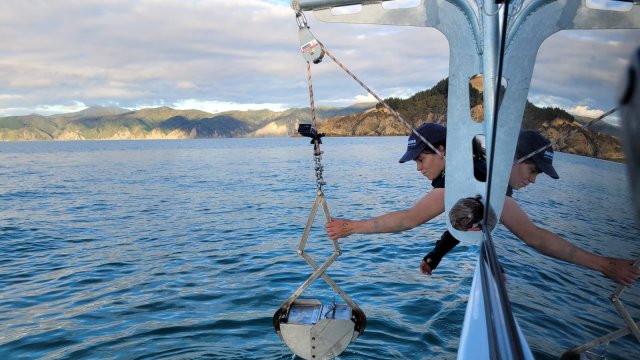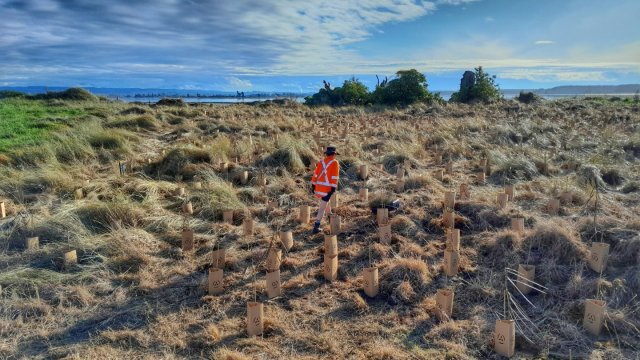Climate Action: Fostering resilience in our coastal ecosystems
09/12/2022 1:28pmAs part of our series on climate change, Nelson City Council Environmental Programmes Adviser, Scott Butcher, provides insight on some of the work happening to combat climate change and enhance Nelson’s coastal ecosystems.
The investment Nelson City Council is making to build resilience in coastal ecosystems has multiple benefits – for sequestering carbon, adapting to the impacts of climate change and enhancing biodiversity.
As climate change increasingly impacts our coastlines, it’s important that we build resilience in our remaining coastal ecosystems, especially saltmarsh and sand dune systems.
Airport Peninsula is a Council coastal park that provides a good example of Council’s work in this space. Prior to development, the area would have been covered in healthy coastal vegetation including foredune sand-binding plants such as pingao (Desmoschoenus spiralis) and spinifex (Spinifex sericeus), dune slack wetlands with a range of sedges and rushes, and dryland coastal forest including tōtara (Podocarpus totara) and kānuka (Kunzea ericoides). The Peninsula today is largely dominated by exotic species with very few native plants remaining.
The recently completed Airport Peninsula Ecological Restoration Plan sets out actions that can be taken to improve the ecological integrity of the site over the next 10 years. This includes the reestablishment of the indigenous vegetation communities that have been lost and expanding those that are still present. Extensive weed control and restoration planting of suitable species are a big part of this work –ecosystems that are more robust will be better able to respond to extreme weather events.
The Ecological Restoration Plan also focuses on gathering better data on species that currently inhabit this site. With increasing pressures on coastal ecosystems from sea level rise, there is an urgent need to better understand what indigenous species – such as penguins and lizards – are currently using our coastal ecosystems. Council is continuously working to improve its data on coastal species and ecosystems.
Coastal dune ecosystems like the Airport Peninsula are rare in Whakatū Nelson; in close proximity to Nelson City there is only one other large sand dune system – Tāhunanui Beach. Ecological Restoration at Tāhunanui Beach has been very successful and has seen the expansion of many species, such as spinifex, which had previously declined.
- Scott Butcher, Environmental Programmes Adviser, Nelson City Council




